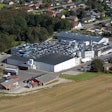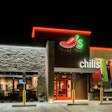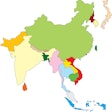
As part of the company’s commitment to converting to 50% renewable energy by 2030, Tyson Foods has begun renewable natural gas (RNG) production at a new plant in partnership with Oregon-based natural gas distributor, NW Natural.
“Each project like this contributes meaningful carbon reductions on behalf of our customers and moves us toward achieving our shared climate goals,” said David H. Anderson, NW Natural president and CEO. “We’re aggressively pursuing additional opportunities, so we can increase our use of renewables over time.”
RNG production at Tyson Foods’ Dakota City facility
After NW Natural invested $12 million into the Dakota City, Nebraska facility, the Tyson plant will now begin to convert the methane generated by the production process into RNG.
Combined with the RNG made at Tyson’s Lexington, Nebraska facility, which began production in January 2022, the facilities produce about 240,000 metric million British thermal units (MMBtu) of RNG each year – enough to heat more than 5,400 homes annually.
What is renewable natural gas?
RNG is produced from the breakdown of organic waste or by-products and, compared to solar and wind energy, has better reliability and seasonal storage, according to NW Natural, while also eliminating waste that would have contributed to greenhouse gas.
Who is NW Natural?
In operation for 164 years, NW Natural provides natural gas services to approximately 2.5 million people across Oregon and Southwest Washington.
NW Natural is able to partner with Tyson thanks to Oregon Senate Bill 98, which allows organizations to invest in and procure natural gas from third parties to distribute in Oregon.


















